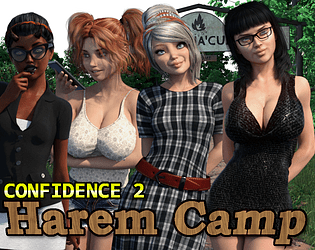Turn-based games have long been a staple of role-playing game (RPG) discussions, often sparking debates about their relevance in an era increasingly dominated by action-oriented mechanics. The recent release of *Clair Obscur: Expedition 33* has reignited these conversations, particularly in relation to genre giants like the *Final Fantasy* series.
*Clair Obscur: Expedition 33*, launched just last week, has received widespread acclaim, including from IGN and other gaming outlets. The game proudly showcases its influences, featuring a turn-based system complete with turn orders, Pictos to equip and master, dungeon exploration, and an overworld map. In an interview with RPGsite, producer Francois Meurisse emphasized that the game was always intended to be turn-based, drawing inspiration from classics like *Final Fantasy VIII*, *IX*, and *X*, as well as elements from *Sekiro: Shadows Die Twice* and *Mario & Luigi*. This blend results in a gameplay experience that combines strategic turn-based planning with dynamic action sequences during attacks and defenses, sparking considerable interest and debate within the gaming community.
Social media has buzzed with discussions about *Clair Obscur*'s success, with many citing it as a rebuttal to arguments against turn-based games, particularly in the context of the *Final Fantasy* series. Naoki Yoshida, the producer behind *Final Fantasy XVI*, has noted a shift towards action-based mechanics in RPGs, driven in part by feedback from younger audiences who find command-based systems less engaging. This shift is evident in recent *Final Fantasy* titles like *XV*, *XVI*, and the *VII* remake series, each of which has its own fanbase and critics.
However, the narrative around turn-based games is more nuanced than a simple call for *Final Fantasy* to revert to its roots. Square Enix has not abandoned turn-based RPGs entirely, as evidenced by successful releases like *Octopath Traveler 2* and upcoming titles such as *SaGa Emerald Beyond* and the *Bravely Default* remaster for Switch 2. While *Final Fantasy* may have moved away from its turn-based origins, the genre continues to thrive in other forms.
The suggestion that *Final Fantasy* should adopt *Clair Obscur*'s approach overlooks the unique aesthetic and narrative elements that define the series. While comparisons between the two are inevitable, reducing *Clair Obscur* to a mere imitation does not do justice to its innovative combat system, compelling soundtrack, and rich world-building. The gaming community has a history of debating the merits of different *Final Fantasy* titles, such as whether *Final Fantasy VII* surpasses *VI*, or if *Lost Odyssey* represents a true successor to the series.
Sales figures also play a crucial role in these discussions. Yoshida has acknowledged the appeal of command-based RPGs but cited expected sales and impact as reasons for *Final Fantasy XVI*'s action-oriented approach. Meanwhile, *Clair Obscur: Expedition 33* has achieved remarkable success, selling 1 million copies in just three days, though Square Enix's expectations for *Final Fantasy* typically set a higher bar.
Despite concerns about the viability of turn-based games, recent successes like *Baldur's Gate 3* and *Metaphor: ReFantazio* demonstrate that there is still a strong market for them. *Clair Obscur*'s success is a testament to Sandfall Interactive and Kepler's dedication, marking a return to the mid-budget RPG scene alongside titles like *Visions of Mana* and *Ruined King*. Whether this momentum will elevate *Clair Obscur* to the heights of games like *Baldur's Gate 3* or *Disco Elysium* remains to be seen.
For *Final Fantasy*, the broader shifts in the gaming industry and the high costs of developing major franchise entries suggest that a radical shift back to turn-based mechanics might not be imminent. However, the key takeaway from *Clair Obscur*'s success is the importance of authenticity and innovation. As Larian CEO Swen Vincke noted, creating a game that excites the development team can lead to significant success, as seen with *Baldur's Gate 3*. This approach encourages developers to focus on what makes their games unique, rather than rehashing old debates.









